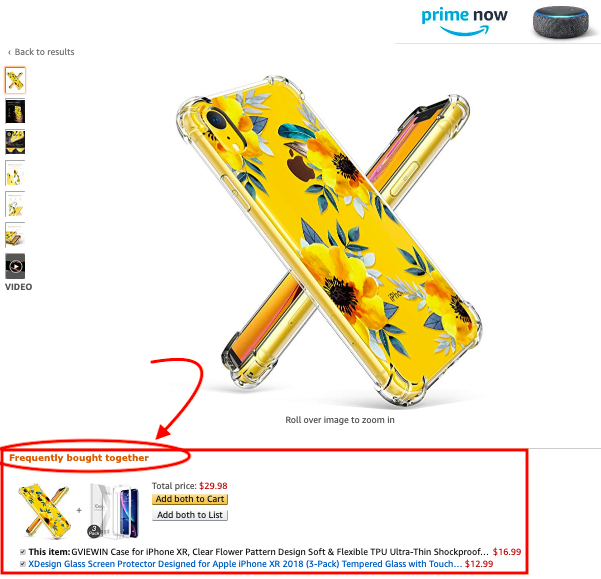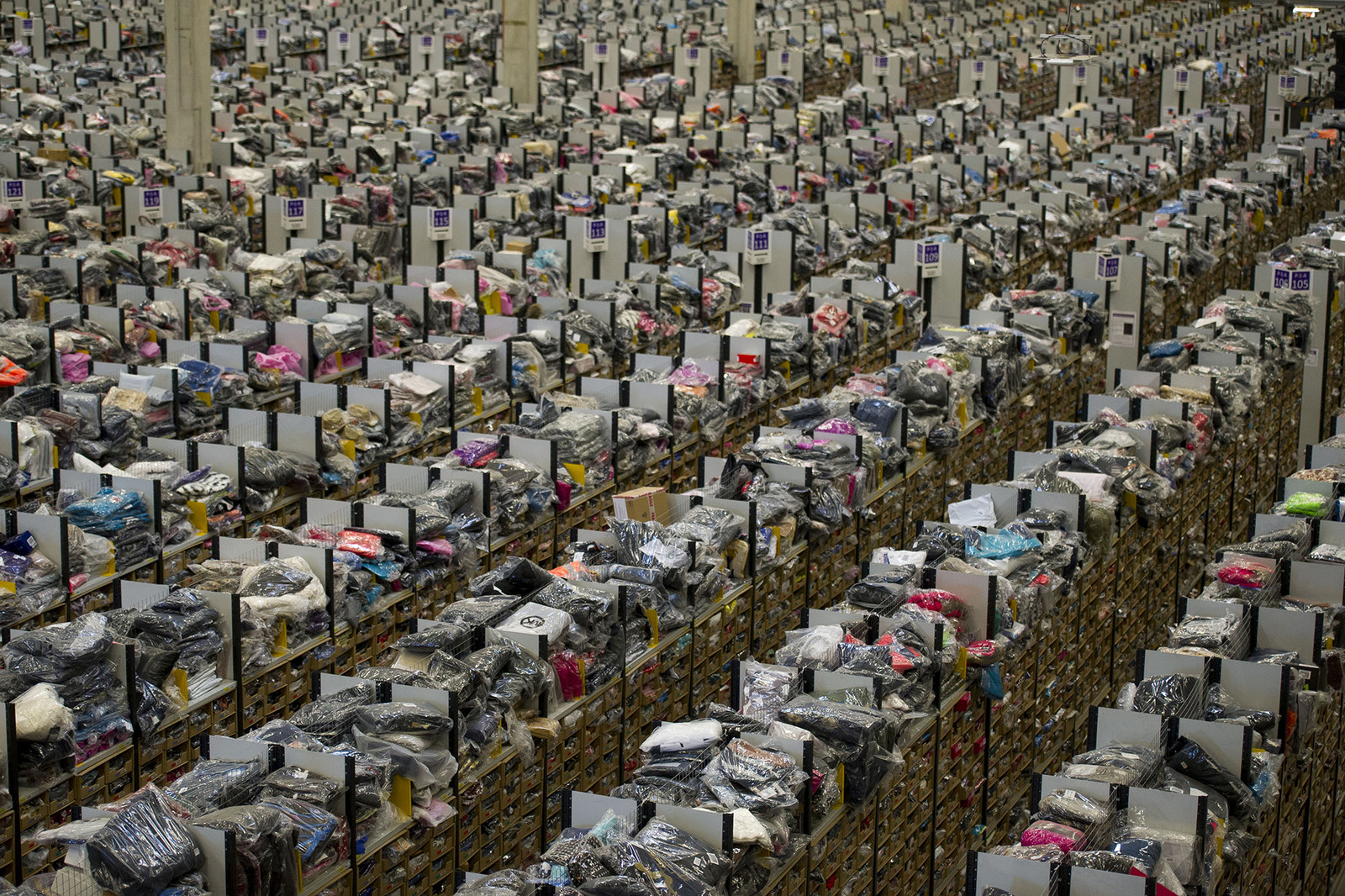
For the millions of third-party sellers on Amazon’s marketplace, maintaining a successful business is a constant battle to rank high in search results, collect positive product reviews, and keep up with Amazon when it releases its own branded versions of sellers’ most successful products. This intense competition has led to the emergence of a secretive, lucrative black market where agents peddle “black hat” services, sometimes obtained by bribing Amazon employees, that purportedly give marketplace sellers an advantage over their rivals, according to documents obtained by BuzzFeed News.
The most prominent black hat companies for US Amazon sellers offer ways to manipulate Amazon’s ranking system to promote products, protect accounts from disciplinary actions, and crush competitors. Sometimes, these black hat companies bribe corporate Amazon employees to leak information from the company’s wiki pages and business reports, which they then resell to marketplace sellers for steep prices. One black hat company charges as much as $10,000 a month to help Amazon sellers appear at the top of product search results. Other tactics to promote sellers’ products include removing negative reviews from product pages and exploiting technical loopholes on Amazon’s site to lift products’ overall sales rankings. These services make it harder for Amazon sellers who abide by the company’s terms of service to succeed in the marketplace, and sellers who rely on these tactics mislead customers and undermine trust in Amazon’s products.
“The extent to which sellers go to game the system, and the amount of resources they devote to doing it, [are] a testament to how Amazon's recommendation and ranking algorithms shape consumption,” Renee DiResta, director of research at cybersecurity company New Knowledge, told BuzzFeed News. “While Amazon repeats that 'even one fake review is too many,' the fact remains that manipulative tactics from dishonest sellers make honest business owners afraid that they can't remain competitive. And when manipulation is successful, it's Amazon's customers who are the victims."
“When manipulation is successful, it's Amazon's customers who are the victims.”
This black hat economy continues to elude Amazon’s detection, despite the company’s efforts to better combat fraud on its site. Although shoppers tend to trust Amazon, the site has long struggled to deal with scams on its marketplace, which include secret organized fake review rings and get-rich-quick schemes that scam sellers out of thousands of dollars. Some third-party Amazon sellers told BuzzFeed News that the use of black hat tactics has become so widespread that when one seller is banned for employing these methods, another seller doing the same thing pops up in their place.
Amazon declined to comment on the specific black hat consulting firms named in this story, but it told BuzzFeed News that these “bad actors make up a fraction of activity” on the site.
The rise of black hat consultants comes as Amazon’s marketplace continues to become a more significant piece of its retail business. Amazon’s third-party sellers now make up 58% of total sales on the platform, at $160 billion, compared to $117 billion in sales by the company’s own retail business, according to Amazon CEO Jeff Bezos. But as that third-party marketplace grows, so does the fierce competition among its millions of sellers across the world.
Davide Nicolucci, founder and director of the Amazon marketing consulting firm Growth Hack, has been critical of black hat tactics on Amazon. He told BuzzFeed News that the marketplace has become so competitive and fraught with black hat manipulation that some sellers feel compelled to break the rules and employ these tactics.
“Amazon is so slow in responding to cases, by the time Amazon resolves your issue, you’ve lost so much money you might as well do black hat,” he said. “It’s crazy. It’s a war.”
“It’s crazy. It’s a war.”
While Amazon has made some effort to police manipulation of its marketplace, the business of black hat consultants continues to prosper, largely hiding in plain sight. A simple search on YouTube for “super URL” brings up dozens of tutorials on how to manipulate Amazon’s ranking system by writing a few words into a product URL that tricks the algorithm into believing real shoppers are finding a specific item through popular keyword searches and adding it to their shopping carts and wish lists. Amazon black hat consultants frequently speak at Amazon seller conferences and events, and some run their own private groups on Facebook, which is where most Amazon sellers connect with one another. For sellers, buying black hat services can be as simple as sending a message on Facebook or attending an online webinar.
One such site that markets black hat services to Amazon sellers, AmzPandora, offers clients a menu of services, which range in price from $1 for a single thumbs-up on a product review to $10,000 to reinstate a suspended account, according to documents obtained by BuzzFeed News. The site AmzPandora.com disappeared after BuzzFeed News contacted the site’s owner, a China-based consultant who goes by the name John Zhu, who operates another black hat tactics site called ClockWorks.deepbrief.net. This site also went offline before publication.
AmzPandora’s services ranged from small tasks to more ambitious strategies to rank a product higher using Amazon’s algorithm. While it was online, it offered to ping internal contacts at Amazon for $500 to get information about why a seller’s account had been suspended, as well as advice on how to appeal the suspension. For $300, the company promised to remove an unspecified number of negative reviews on a listing within three to seven days, which would help increase the overall star rating for a product. For $1.50, the company offered a service to fool the algorithm into believing a product had been added to a shopper’s cart or wish list by writing a super URL. And for $1,200, an Amazon seller could purchase a “frequently bought together” spot on another marketplace product’s page that would appear for two weeks, which AmzPandora promised would lead to a 10% increase in sales. Amazon declined to specifically comment on AmzPandora and the services it offered marketplace sellers.
If you have information or tips, you can contact this reporter over the encrypted chat service Signal at (559) 360-2419. You can also send an email to leticia.miranda@buzzfeed.com.

Another service AmzPandora offered for $550, called “selling status removed check,” would provide sellers with suspended accounts with information about why the suspension happened, Zhu told BuzzFeed News in March over Skype. He said that this service “is currently not working,” but his company sometimes pays Amazon premium account managers around $2,500 to “help us check.”
Zhu told BuzzFeed News that many of the services AmzPandora offered simply scrape publicly available data, like customer emails and phone numbers, from Facebook and Google. He said his offerings didn’t violate Amazon’s terms of service and that “this is what everybody else [does].” Zhu eventually hung up the call and refused to respond to several attempts for additional comment.
“The bad actors that offer these underhanded services and those who purchase them show a flagrant disregard for our community, our policies, and, in some cases, the law, and do not reflect the flourishing community of honest entrepreneurs that make up the vast majority of our sellers,” Amazon said in a statement. “We will continue to combat them, make it more difficult for them to hide, and work with law enforcement to hold them accountable by withholding funds and pursuing civil and criminal penalties.”
Though Zhu said his business isn’t breaking the rules, during a recording of an October ClockWorks seminar for clients obtained by BuzzFeed News, he admitted he is using information collected directly from Amazon employees. He advised attendees to “stay low” and warned that they “don’t want anything to leak out so these tactics are not available anymore.”
“I don’t make this stuff up. It’s from Amazon internal.”
During the seminar, Zhu said that he can pull an analysis of a product listing that comes directly from “internal” Amazon, which gives a seller insight into their competitors. In a sample report Zhu showed in a PowerPoint presentation, he explained how Amazon’s internal product’s ranking system works, saying that it is based on recurring purchases, searches, and pageviews.
“I don’t make this stuff up,” he said during the seminar. “It’s from Amazon internal.”
Amazon told BuzzFeed News that it has “sophisticated systems to restrict and audit access to information” and that any employee who violates its code of ethics can face discipline, termination, and possible legal and criminal penalties. It also said it takes action against sellers who pay for internal information; penalties include terminating their selling accounts, deleting reviews, withholding funds, and taking legal action. Amazon declined to comment on whether the information Zhu presented in the seminar is available only to internal employees or how it was obtained.
Zhu’s seminar amounted to a two-hour pitch about the benefits and black hat tricks a seller can access and employ with a “Cobra Account” available through ClockWorks. During the talk, Zhu took attendees through the many steps of hijacking a listing from its original owner. He explained how to manipulate the marketplace to avoid the $150 fee to list a “Lightning Deal” and he advised how sellers can snag coveted “Vine Voice” reviews on their products, which is a designation shoppers tend to trust. He also detailed how sellers can sabotage their competitors by creating fake buyer accounts with black market credit cards to write negative reviews and “send[ing] flooded emails” to sellers over Amazon’s messaging system with terms like “counterfeit,” “fired,” “broken,” “fake products,” and “poison.” A PowerPoint slide in the presentation says this can get the targeted account blocked or terminated “for sure.” Zhu also said in the seminar that through the “Cobra Account” his company offers, an Amazon seller can create an untraceable customer profile to write reviews, as well as upvote or downvote reviews for their own products and competitors’.

Amazon has ramped up its battle against fraud and illicit tactics on its marketplace over the last few years, which includes a crackdown in December on employees who take bribes to leak customer information. But its marketplace is so sprawling that attempts to combat bad actors add up to an ongoing game of whack-a-mole.
As recently as March 21, AmzPandora was promoting a service that offered to obtain a customer’s email address for sellers, according to documents obtained by BuzzFeed News. Amazon prohibits third-party sellers from accessing any of its customers’ email addresses or phone numbers because it limits communication to Amazon’s messaging system.
Amazon’s terms of service for sellers expressly prohibit “any attempt to manipulate sales rank.” This includes accepting fake orders, placing orders on your own products, and paying buyers to purchase products. It also prohibits sellers from creating multiple seller accounts, writing reviews on their own products, and simulating customer traffic to a product — all of which black hat companies like AmzPandora offer to do for clients.
Although the black hat seller service market is secretive, there’s a low barrier to entry for buyers. One site called Black Hat Tech — blackhattech.asinspy.net — lets interested sellers order black hat services as simply as placing an order over WeChat. The company offers services like “remove bad review” for 1,500 Chinese yuan (about $223 US) and “manipulate the reviews [and] manipulate the sales rank” for the cost of 41,000 Chinese yuan (about $6,100 US). The company declined to comment to BuzzFeed News.
Amazon told BuzzFeed News it relies on teams of investigators, automated technology, and machine learning technology to prevent and detect inauthentic reviews at scale, and to take action against the bad actors behind the abuse. Its team also works with social media sites to stop inauthentic reviews that are curated in private groups, it said.
“Amazon invests significant resources to protect the integrity of reviews in our store because we know customers value the insights and experiences shared by fellow shoppers,” Amazon said. “Even one inauthentic review is one too many. We have clear participation guidelines for both reviewers and selling partners and we suspend, ban, and take legal action on those who violate our policies.”
“It's not rare for me to be on the phone with a grown man who is crying because he's lost his entire business.”
One black hat consultant, who asked to remain anonymous, told BuzzFeed News that he can get a suspended Amazon seller account reinstated by pulling strings with his employee connections inside Amazon. He said he sometimes repays these employees, who are based outside of the US, with favors like help with their US immigration papers. He charges sellers about $2,000 to reinstate an account that was suspended for slow shipping rates or similar customer complaints. The consultant even has a solution for sellers caught selling counterfeits, which Amazon has taken a hard line against. Reinstating an account suspended for alleged counterfeits can cost between $4,000 and $4,500.
The consultant said that he knows this service is against the rules, but he sees third-party sellers as David facing off with Amazon’s Goliath.
"It’s not rare for me to be on the phone with a grown man who is crying because he’s lost his entire business," an Amazon consultant, who asked to remain anonymous, told BuzzFeed News.
Another site, called Seller Mafia, is run by a Shenzhen-based consultant named Howard Thai who has branded himself as the “Professor of Amazon.” Its most expensive product is a plan called “stealth ranking system,” which allows a seller’s product to appear in query results when a customer on Amazon searches for competitive words on their product, according to documents obtained by BuzzFeed News. For $2,000, Seller Mafia promises to rank three highly competitive keywords for a client’s product, which manipulates the keyword parameters in an Amazon URL to manufacture a relationship between a product and keyword. To do this, the company can write an Amazon URL that includes the client’s product and keyword and then have bots or paid workers click on the link. This tells the algorithm that people who search for “protein powder,” as an example, are clicking on the client’s product. Thai declined to confirm that his company offers this service, but Seller Mafia features it on a list of services offered to clients. On SellerMafia.com, a seller can also buy a second “stealth seller” account for $1,000 that allows them to use a second account in case their first account is “hit by a competitor,” Thai told BuzzFeed News.
For just $5, Seller Mafia will “brush” an account, which is when a product page is stripped of all information except its reviews and listed with a new product, which is against Amazon’s marketplace rules. This allows a seller to inherit a positive star rating and high ranking for a product without ever selling anything. So a shopper may see a four-star product like a jade roller, but the listing has had previous lives as a garage opener and a step stool to earn that average four-star rating. The trick capitalizes on consumers who don’t always scroll through every review and may miss that a product listing had once been for a completely different item.
In an undated marketing video on Seller Mafia available to logged-in clients, which BuzzFeed News obtained, a Shenzhen-based seller named Kevin Zhang said that his product shot up Amazon’s ranks to become one of the top 10 products in the category after he consulted with Thai.
“Everybody is doing it. People have to survive.”
“Before we used the brushing system, we never imagined we could rank into the top 10 of Amazon,” he said in the video. “Right now we are number nine, and it’s still going up.” Amazon declined to directly comment on Seller Mafia’s services.
Some sellers who employ black hat tactics say they’re reluctant to do so, but don’t know how else to keep up with their competitors. A seller who uses Howard Thai’s suite of services on SellerMafia.com and asked to remain anonymous told BuzzFeed News that he’s been using different versions of black hat techniques since 2014, when Amazon’s marketplace became inundated with dirty selling tactics. That’s around when he said he noticed people using Amazon’s messaging system to send emails to shoppers offering free products in exchange for reviews and learned about offices full of people in Bangladesh paid to write fake reviews.
“Everybody is doing it,” he said. “People have to survive, so of course they’re going to do it. … They’re like, ‘Why the hell am I spending money on ads and I’m not on page one?’”

The seller said that without Seller Mafia he would barely break even on sales because the cost of advertising on Amazon is so high. He said he spends about 30% of sales on advertising. He currently makes about $3 million a year in net profits, but before he used Thai’s services he was making $73,000 a year.
“They’re upsetting me,” he said about sellers who depend on black hat tactics on Amazon. “You always want to do things the right way.”
Thai’s suite of services extend beyond the website. He also hosts classes where he charges sellers $10,000 to learn black hat techniques for “educational purposes,” he told BuzzFeed News. At a recent two-day seminar in New York City, about 30 people gathered in a small conference room at the Renaissance Hotel in Times Square to learn from Thai.
Thai told BuzzFeed News that the seminars aren’t teaching sellers how to cheat. He said he just teaches “what people are doing out there in China.”
“We don’t just do only black — we do a lot of white,” he added. This means he also teaches sellers tips that don’t violate Amazon’s rules.
But in a free webinar on March 28, Thai pitched an upcoming training in Shenzhen, China, and emphasized the unsanctioned nature of his services. He promised “the most controversial secrets in all of Amazon will be handed to you on a silver platter” and to “spill the EXACT strategies that have hacked Chinese sellers to massive success on Amazon time and time again.” Though he didn’t offer any specifics in his pitch, Thai assured that attendees “will receive UNFAIR amounts of competitive intelligence into your competitors so you can outmaneuver them.”
Chris McCabe, a former Amazon marketplace investigator who now runs an above-board seller consulting firm, ecommerceChris.com, told BuzzFeed News that black hat consultants and sellers who manipulate the company’s sales rank and try to undermine other sellers are experts at evading Amazon enforcement teams despite the company’s efforts to track them.
“Targeted sellers must constantly use defensive tactics through brand registry and reports to policy teams to counter the abuses, which takes away from brand development and revenue growth," he said.
The US-based seller who depends on Seller Mafia for his business said he’s doubtful that Amazon will be able to prevent people from using new black hat techniques in the future.
“They’re always going to figure it out,” he said. “Whatever the machine makes there’s a human to manipulate it.” ●
